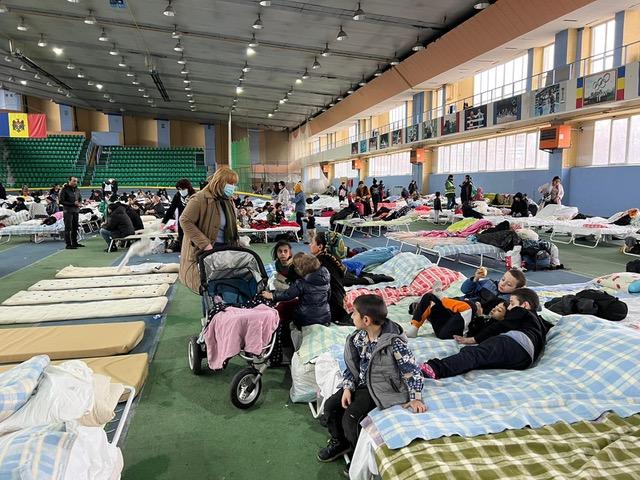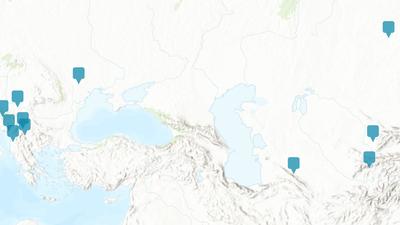-
Our work
-
Fields of work
- Arms control
- Border management
- Combating trafficking in human beings
- Conflict prevention and resolution
- Countering terrorism
- Cyber/ICT Security
- Democratization
- Economic activities
- Education
- Elections
- Environmental activities
- Gender equality
- Good governance
- Human rights
- Media freedom and development
- Migration
- National minority issues
- Policing
- Reform and co-operation in the security sector
- Roma and Sinti
- Rule of law
- Tolerance and non-discrimination
- Youth
- Field operations
- Projects
-
Meetings and conferences
- Summit meetings
- Review Conferences
- Ministerial Council meetings
- Plenary meetings of the Permanent Council
- Plenary Meetings of the Forum for Security Co-operation
- Security Review Conferences
- Annual Implementation Assessment Meetings
- Economic and Environmental Forum
- Economic and Environmental Dimension Implementation Meetings
- Human rights meetings
- Media conferences
- Cyber/ICT security conferences
- Conference of the Alliance against Trafficking in Persons
- Gender equality conferences
- Annual OSCE Mediterranean conferences
- Annual OSCE Asian conferences
- Partnerships
-
Fields of work
-
Countries
- All
-
Participating States
- Albania
- Andorra
- Armenia
- Austria
- Azerbaijan
- Belgium
- Belarus
- Bosnia and Herzegovina
- Bulgaria
- Canada
- Croatia
- Cyprus
- Czechia
- Denmark
- Estonia
- Finland
- France
- Georgia
- Germany
- Greece
- Holy See
- Hungary
- Iceland
- Ireland
- Italy
- Kazakhstan
- Kyrgyzstan
- Latvia
- Liechtenstein
- Lithuania
- Luxembourg
- Malta
- Moldova
- Monaco
- Mongolia
- Montenegro
- The Netherlands
- North Macedonia
- Norway
- Poland
- Portugal
- Romania
- Russian Federation
- San Marino
- Serbia
- Slovakia
- Slovenia
- Spain
- Sweden
- Switzerland – OSCE Chairpersonship 2026
- Tajikistan
- Türkiye
- Turkmenistan
- Ukraine
- United Kingdom
- United States of America
- Uzbekistan
- Asian Partners for Co-operation
- Mediterranean Partners for Co-operation
-
Structures and institutions
- Chairpersonship
-
Secretariat
- Secretary General
- Office of the Secretary General
- Conflict Prevention Centre
- Transnational Threats Department
- Office of the Special Representative and Co-ordinator for Combating Trafficking in Human Beings
- Office of the Co-ordinator of OSCE Economic and Environmental Activities
- Gender Issues Programme
- Opportunities for Youth
- Department of Human Resources
- Department of Management and Finance
- Office of Internal Oversight
- Documentation Centre in Prague
- Institutions
-
Field operations
- Presence in Albania
- Centre in Ashgabat
- Programme Office in Astana
- Programme Office in Bishkek
- Mission to Bosnia and Herzegovina
- Programme Office in Dushanbe
- Mission in Kosovo
- Mission to Moldova
- Mission to Montenegro
- Mission to Serbia
- Mission to Skopje
- Project Co-ordinator in Uzbekistan
- Closed field activities
- Parliamentary Assembly
- Court of Conciliation and Arbitration
- Organizational structure
- About us

Story
We must respect the dignity of the women and children forced to flee Ukraine: Interview with Special Representative Liliana Palihovici
- Date:
- Source:
- OSCE Secretariat
- Fields of work:
- Conflict prevention and resolution, Gender equality, Migration
Liliana Palihovici, Special Representative of the OSCE Chairperson-in-Office on Gender, is President of the public association Institutum Virtutes Civilis in her home country of Moldova. An independent think tank dedicated to the development of the rule of law and the promotion of participatory democracy, the association immediately began providing tailored humanitarian assistance when refugees, the majority of them women and children, started arriving in Moldova from Ukraine.
You have often emphasized the importance of the Women, Peace and Security agenda and the fact that conflict impacts women and men differently. What are you seeing in Moldova now?
I see people, mostly women, who didn’t want to leave their country but who were forced to leave their husbands and brothers behind to bring their families to safety. I see young mothers travelling with their children and only a small bag, heavy with worry, thinking “when will we go back home”?
From the beginning of war, about 400,000 refugees have entered Moldova and about 100,000 remain here. About 80 per cent are women and children, and more than half of that are children. The rest are mostly elderly people.
UN Women and the International Organization for Migration conducted a survey among Ukrainian refugees in Chisinau a few weeks ago to help focus efforts to better assist them. They found that about one quarter of them intend to remain in Moldova until the conflict ends and then return home. The rest plan to continue on to other European countries, generally to find a safe haven with relatives.
Many of those remaining in Moldova are accommodated in temporary centres, but a large number are staying with Moldovan families. The people of Moldova show solidarity with Ukrainian refugees. I would especially like to mention the activism of the young Moldovans working with refugees as volunteers, many of whom are also providing first assistance at the border.
How is your association, the Institutum Virtutes Civilis, responding to the situation?
We are identifying and addressing the most pressing needs of the female refuges and their families.
When the refugees first arrived, we immediately provided assistance in a large accommodation centre that opened in Chisinau. For example, with the support of the international humanitarian aid organization IsraAID we set up a playground there. When we learned that refugees were also being accommodated in other parts of Moldova, we changed our focus. We are now supporting the assistance efforts of the public administrations in four districts in central and northern Moldova.
We are providing food, but also personal hygiene items and assistance with childcare; organizing friendly spaces for children and teenagers, and activities with animators.
How children can continue their education is an important concern. We are co-operating with other organizations to find ways either to include them in our educational system or to provide them with an internet connection so that they can continue their education according to Ukrainian curricula, which I think is the best solution.
We are supporting the activity of the volunteer group ‘Moldova for Peace’ to assist the government in identifying accommodation spaces and offering safe transportation from the border. For those that are traveling on to other countries, we are identifying options for safe travel, which is very important given the real risk of human trafficking that always arises in these situations.
This is what we are doing, and we are living every day with the idea that maybe today is the last day of the war and people will have the possibility to return to their homes.
As Special Representative of the OSCE Chairperson-in-Office, what is your message to participating States?
I would like to reiterate my call to all OSCE participating States, which I voiced on March 10 to the Permanent Council, to make the best use of the OSCE as a platform for negotiations in restoring peace. This is the most important thing we need now.
Secondly, I urged all countries, whether or not they have a border with Ukraine, to provide emergency assistance. Refugees are going everywhere, and they need accommodation, safe travel, and a safe stay.
I called on countries to offer refugees the possibility to obtain an identification document if they do not have it. It happens that persons are forced to leave their homes without anything, even without documents, and this brings great risks for their personal security.
My call was also for participating States to offer refugees the possibility to enter the labour market, and opportunities for education and childcare. If possible, it would be important to provide some financial support, because the refugees need it for living expenses.
In such challenging times, the risk of human trafficking is increased. Therefore, it is essential to conduct awareness campaigns so that the refugees know exactly whom to contact in such cases.
It is crucial that the dignity of the women and children forced to leave their country be respected. In Moldova, our organization is preparing social theatre performances on non-discrimination. Our intention is to present this performance to the women, children and teenagers from Ukraine, and to discuss with them the importance of non-discrimination and equality. We want them to understand that even if they are now living through a challenging period, they always have to keep in mind that no one has the right to discriminate against them. They have to be proud of themselves, and their dignity must be respected. This is our message. The Women, Peace and Security agenda should remain a priority for the OSCE, for many years to come.
OSCE Impact
Discover more stories about how the OSCE improves lives.



